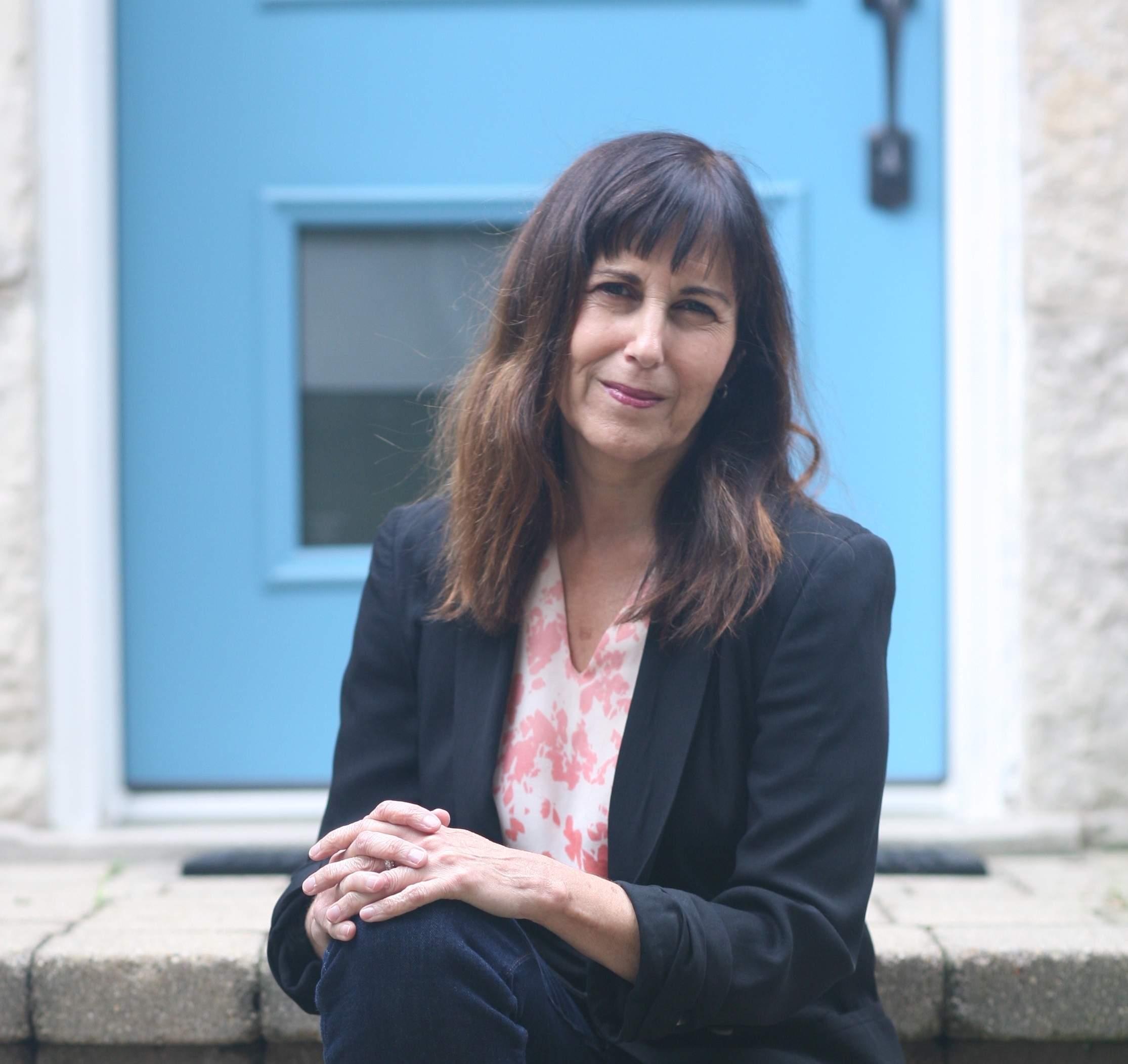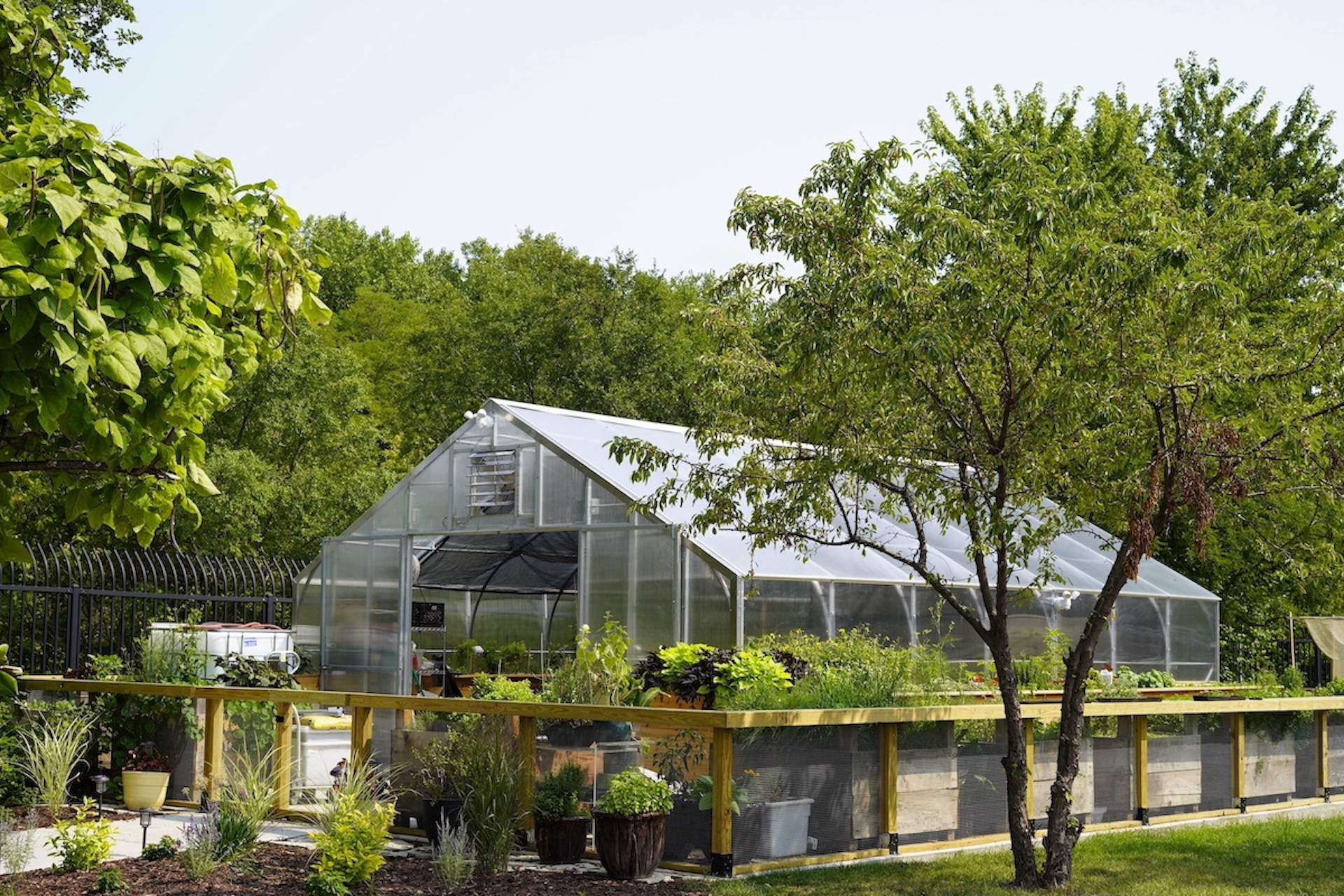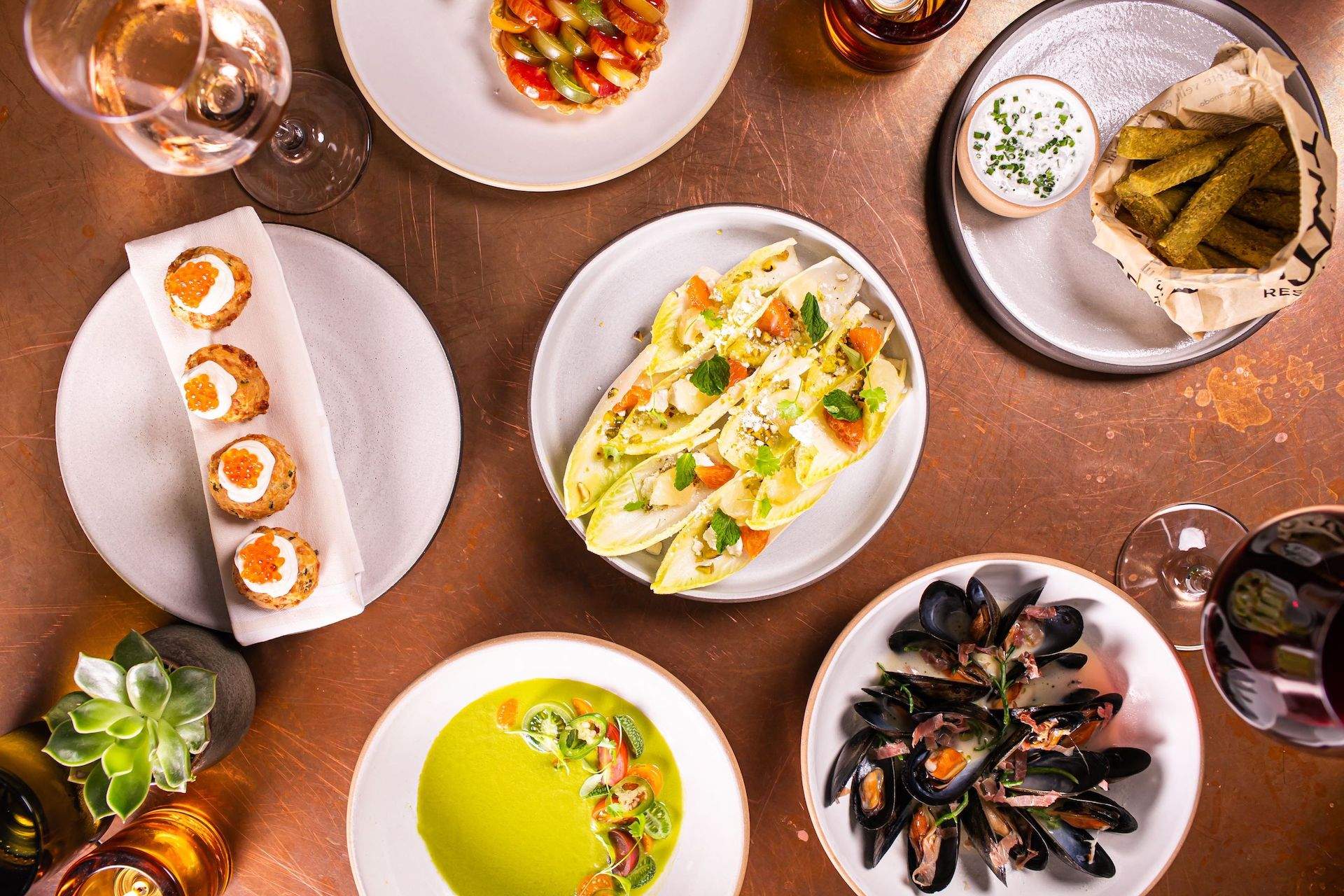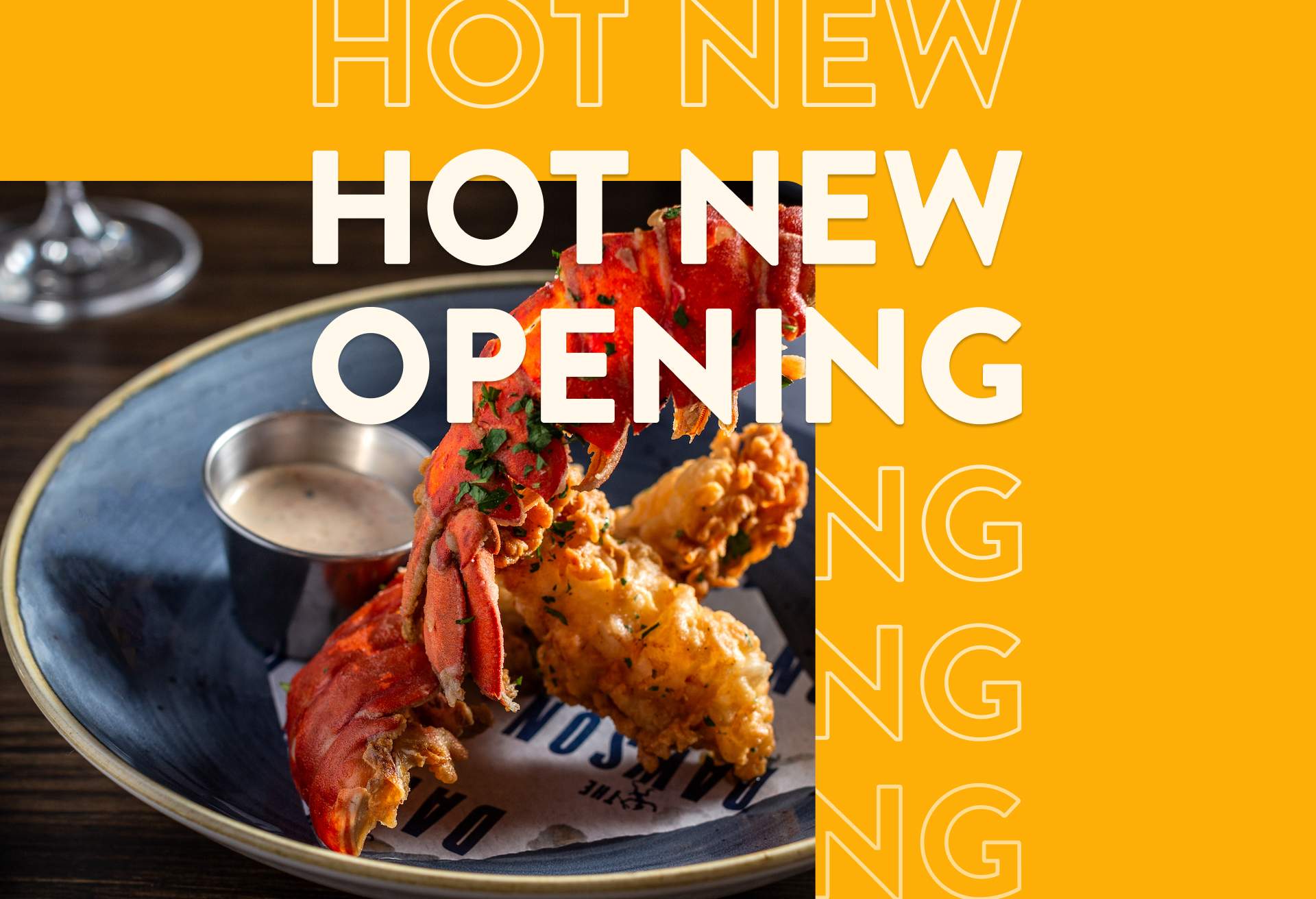Chicago’s weather is nothing if not unpredictable, but inside the 20-by-28-foot greenhouse of Avondale restaurant Eden, it’s always more or less a balmy 86 degrees. Double-ply polycarbonate panels help insulate it as do the computers regulating the temperature and humidity. That’s where partner and chief culinary officer Devon Quinn spends part of his day tending 46 different types of vegetables, herbs, and edible flowers.
“To be intimately involved with planting something from seed, getting my hands dirty, growing it to fruition, seeing it on someone’s plate, and then seeing their response after eating it is incredibly fulfilling,” Quinn says.
While these days there are plenty of restaurants waving the farm-to-table flag, Eden has been at the forefront of the movement here in Chicago for nine years. The restaurant started with a small greenhouse at its original West Loop location and now has a larger one at its Avondale home, which opened in May 2022. The greenhouse, along with Eden’s in-house sustainability expert, commitment to composting, sourcing locally, and donating food surplus, makes this a one-of-a-kind establishment in the city.
“Having a true connection to what you are serving is very important to me,” Quinn says. “I’m not good at acting, but I’m a good salesperson if I’m connected to what I’m selling.”
One-of-a-kind on-site greenhouse
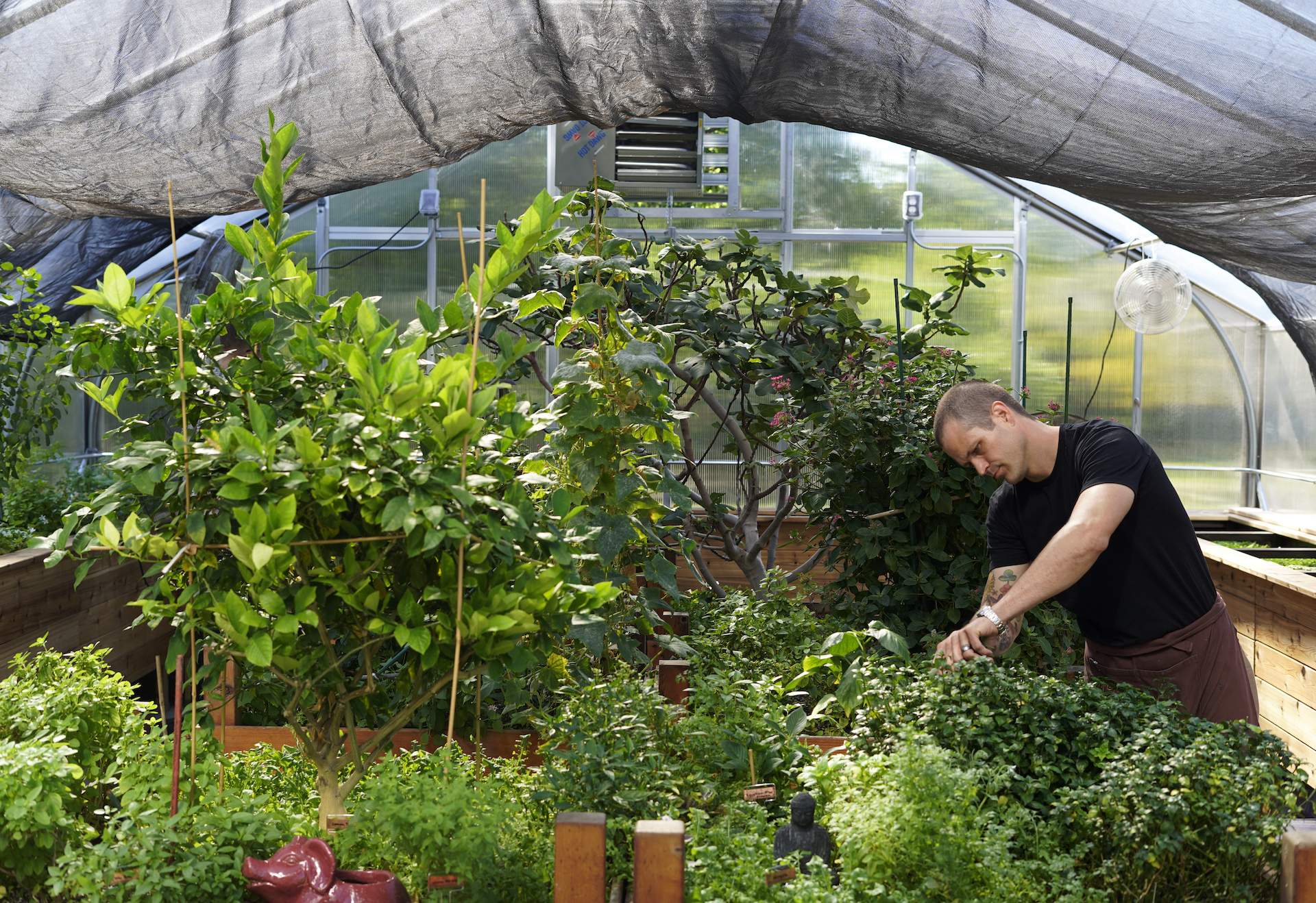
On a typical day—rain, shine, or snow—Quinn or his garden assistant fill a small water pump in the restaurant and wheel it across the parking lot where the greenhouse is located. After watering, Quinn picks items for the day—some bright pink Egyptian star flowers for plate garnish, perhaps—and does some hedging to promote growth. “All herbs like a good haircut,” Quinn says.
The greenhouse saves the restaurant money and provides it with fresh ingredients, and the flowers inside it support an ecosystem attracting bees, butterflies, birds, and other pollinators.
“I try to grow unique things that you don’t find on every plate in Chicago,” Quinn says. “We are able to use things fresh daily without losing flavor or color.” Quinn is especially proud of the Chicago fig tree in the greenhouse that recovered after being moved indoors.
To supplement greenhouse produce, Quinn heads to Green City Market twice a week during the summer to hand-pick items for the restaurant and off-site events. “It’s a lot of work, but it’s so much more meaningful to myself and my team,” he says.
These ingredients come alive at Eden in simple, seasonal dishes such as a recent chicory and citrus salad. Another recent highlight is wood-grilled, berbere-spiced carrots with goat cheese puree, scallions, honey, and ricotta salata, which made the cover of a recent Chicago Magazine issue.
Quinn works with his culinary and mixology teams to see what interests them, too. Ingredients for shrubs, infusions, and syrups are popular, including a thyme-infused agave syrup for a recent zero-proof cocktail.
Other cutting-edge sustainability efforts
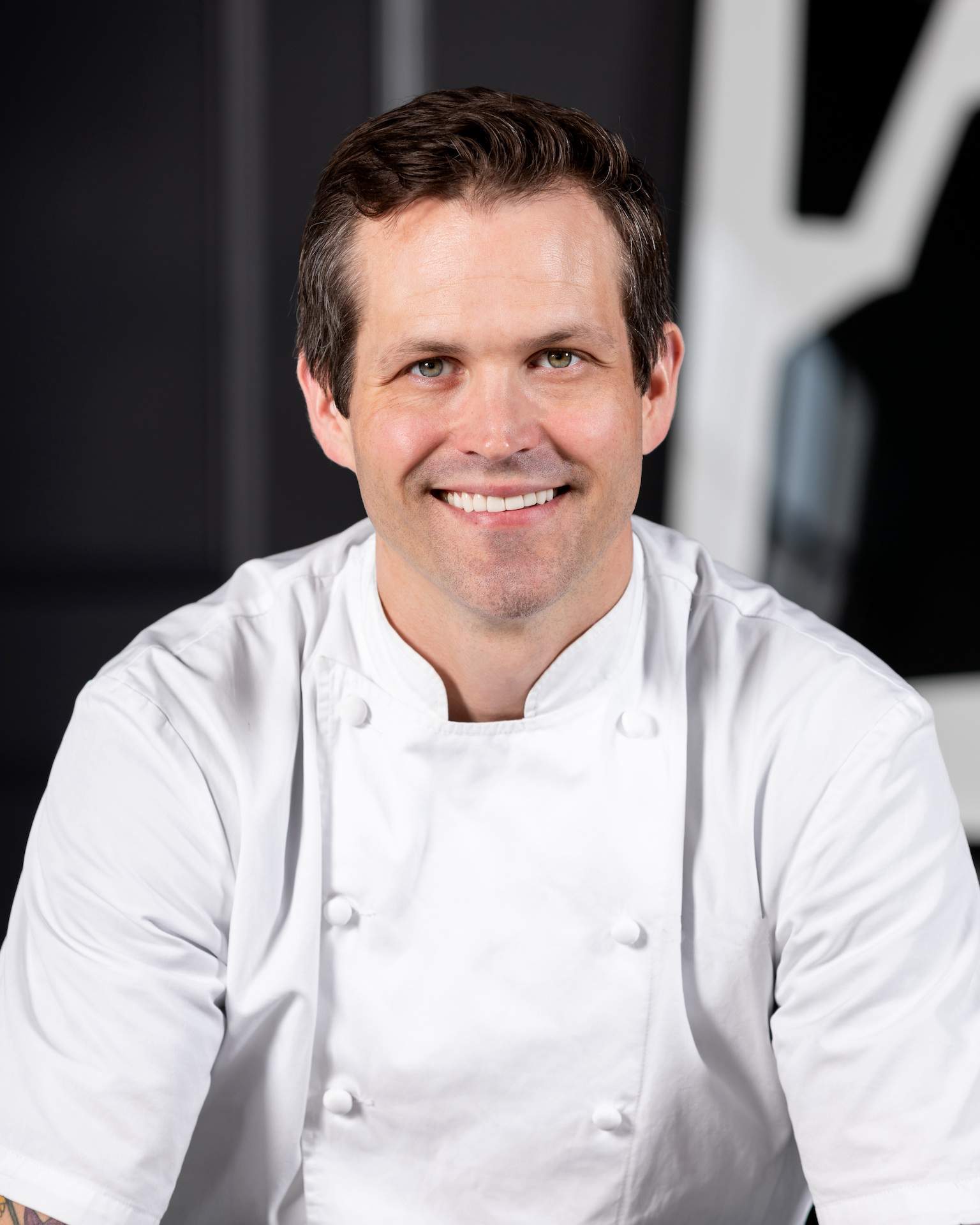
Relying on the greenhouse and sourcing locally is only part of the work Eden does for the environment and its community.
The restaurant reintroduced composting to its building six months ago and now composts 100% of its compostable items. Clear composting containers on the chefs’ workstations act as visual reminders to avoid using the garbage cans and show chefs the food they’re saving. This extends to off-site events where Eden works with WasteNot Compost—even though it costs clients more. “It doesn’t benefit their bottom line, but it’s the larger picture clients are looking at, which is pretty awesome,” Quinn says.
Donating surplus food from events and the restaurant, such as housemade pastries in the display case leftover after brunch, is another responsibility Eden takes on. The restaurant works with outside firm Copia, which picks up prepared food and drops it off at local non-profits.
To keep track of their efforts as well as implement new ones, Eden hired a certified sustainability expert last year, a rarity in the hospitality industry. Marley Finnegan creates an actionable sustainability program, mission, and policies for the restaurant. Recently, she worked through complications that allowed Eden to participate in its composting and food donation programs.
Looking to the future
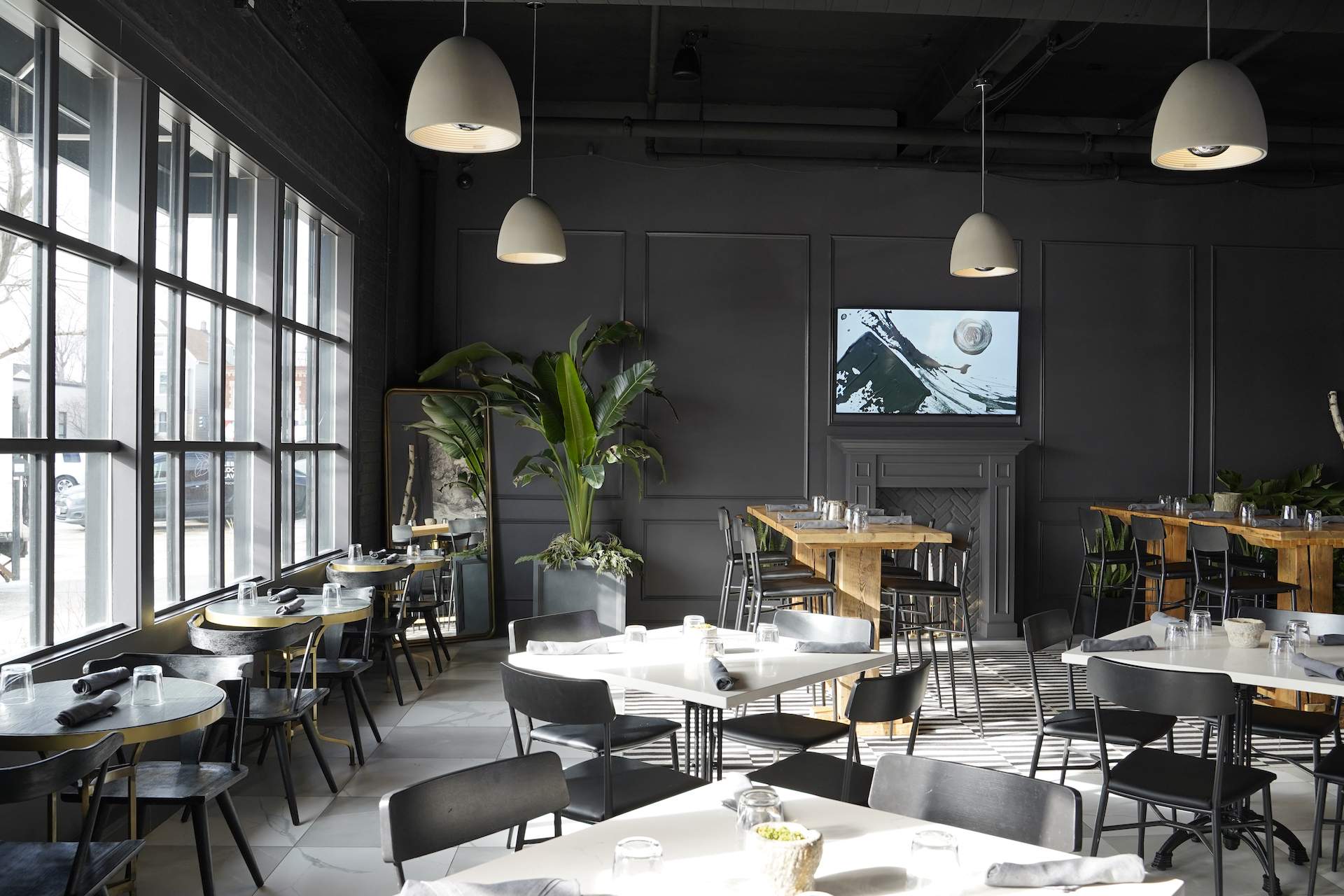
The next big initiative Eden wants to tackle is doing away with disposable products such as bowls at events. “In a major city like Chicago, if you could eliminate something like disposables from at least a portion of it, it could be a huge thing,” Quinn says. “It’s just a matter of finding enough like-minded people to do it.”
Quinn says he’s driven to experiment and implement changes at his restaurant with the hope that others in the Chicago restaurant community will follow.
“I’d love to see every restaurant grow ingredients any way they can, even if it’s just a planter box with herbs or making use of any space they can to do these types of things,” he says.
Lisa Shames is a writer focused on travel and food culture in Chicago, IL, and is the U.S. contributor for Sogoodmag. Find her on Instagram.
